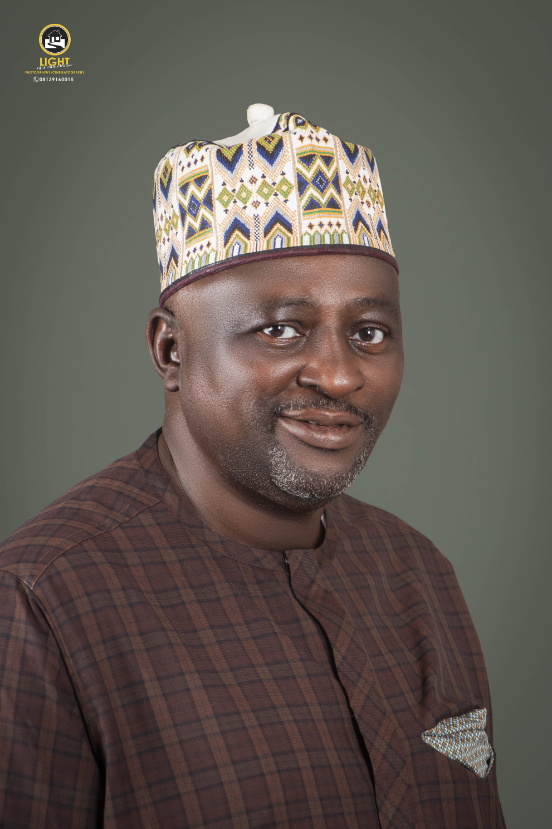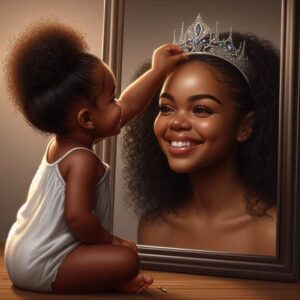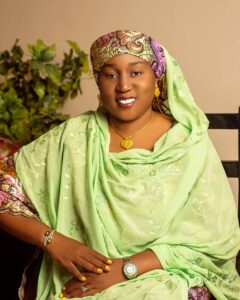Denja Abdullahi, a Poet, Dramatist, Playwright, Arts administrator and Culture Technocrat
Gotname: What is the most difficult part of your artistic process especially as an African and Nigeria?
Denja Abdullahi: Getting into the frame of mind and reserving the space for creation is often difficult with the barrage of existential concerns in Nigeria and Africa.
Gotname: Does your family support your career as a writer? If not how did you convince them?
Denja Abdullahi: They have to bear my writerly life, associations, activities and predilections as they saw me gravitate to becoming a writer and they watched me make a mark for myself as one. When people around you that close see what you do to make you feel fulfilled ,they just have to accept it.
Gotname: If you had to do something differently as a child or teenager to become a better writer as an adult, what would you do?
Denja Abdullahi: I would read more, travel more and take more challenging risks to become a better writer.
Gotname: How long on average does it take you to write a book and what inspire you?
Denja Abdullahi: The time it takes to write a book depends on the book you are writing, the way the inspiration to write the book came and the time to put into writing it. My first published work, Mairogo, took me about 5 years to write. There are those which were conceived at a point in time and written many years after and published even years later. There are those written in a few weeks and published only months after. Time taken to write books can be uneven when compared to one another. The society, the environment, the culture and the quirkiness of man and nature inspire me to write.
Gotname: How many unpublished and half-finished books do you have?
Denja Abdullahi: I have 13 published books cutting across poetry, drama, collection of interviews and co-edited scholarly works. I am working on a collection of essays, a book of criticism on my works, written by someone else and many other written ideas about for a future creative texts and a memoir.
Gotname: What does literary success look like to you?
Denja Abdullahi: Literary success is all about writing something people find worth reading, writing on and even performing. In that respect I can say I have modestly achieved some literary successes. My poetry has made some marks as a much studied texts in universities and colleges, received honourable mention in competitions and some have been performed as a long span engaging drama on stage. My play Death and the King’s Grey Hair, first written in 1994, first published in 2014, won SONTA Master Playwright Prize in 2015, shortlisted for NLNG Drama Prize in 2018 and at the last count has been performed on stage in about 30 places across Nigeria in the last 5 years. That to me is literary success. If your work does not provoke thoughts, arguments, enchantments, laughter and give birth to other works by other writers or transposed into other artistic medium then you cannot be said to be a successful writer. In another way personal to me, literary success has been by successful and eventful management of the largest writers’ association in Africa, Association of Nigerian Authors(ANA) as president between 2015-19 and having the Mamman Vatsa Writers’ Village building started during my tenure.
Gotname: What’s the best way to market your books?
Denja Abdullahi: A writer is not supposed to be concerned with the marketing of his books, that is the job of the publisher and bookseller and the literary agent. But with the failure in the book chain, all I can say is that a good book should be able to market itself. However, today one has to leverage on the social media and other digital technologies to market books to possible end users. The literary events circuits and notable book stores are good places to market books.
Gotname: Do you view writing as a kind of spiritual practice?
Denja Abdullahi: Writing is like a priestly vocation. Writers use words as their major resources and words have a spiritual force. A writer must also be sincere as the unacknowledged legislator and conscience of the society ,so he needs to come clean and uncluttered as expected of a priest. A writer must not deviate from the truth of things even with the use of all the artifices of art and language. A writer should always be the voice of the voiceless, the underdog and the unheard and it takes a sacrificial spiritual disposition to adhere to all these.
Gotname: Do you believe in the “Woman”?
Denja Abdullahi: Yes I do as the woman is more than half of creation. The woman is the nurturer, the life giver, the care giver, the “consoler,” the inspiration and a major part of what God has adorned the world with.
Gotname: What word do you have for the traumatized… ?
Denja Abdullahi: They should know that all of God’s creation walk with their own trauma, it is only the intensity that differs. Being born itself is traumatic, that is why a child cries at birth and the journey of life is a journey towards death. Life itself is trauma with brief moments of enjoyment, indulgence and leisure. So the traumatized should not resign to fate, they should battle their trauma to get happy again and know that everything in life is just for a while.
Gotname: How can a writer inspire change in Nigeria?
Denja Abdullahi: By writing well and getting involved positively in things outside the texts of his books. It can be anything in which a measure of organisation towards a positive result is required.
Gotname: How many hours a day do you write?
Denja Abdullahi: I do not have a specific writing regimen, I write whenever I feel like. There are days in which I do not write at all and there are days I write for several hours.
Gotname: Have you read anything that made you think differently about fiction
Denja Abdullahi: Fiction is varied and except you have not read wide enough, you will continue to meet up with brilliant and sometimes disconcerting books.
Gotname: What are the ethics of writing about historical figures?
Denja Abdullahi: You must keep to some bare historical facts and build in your imagination into areas where facts have not been able to reach. You must also be conscious of not out rightly offending the sensibilities of the owners of the stories around the historical figures. Imagination starts where history ends.
Gotname: Which poem has changed your life?
Denja Abdullahi: Can I say Africa My Africa by is it David Diop or Birago Diop? Many other totemic African poems contained in the book West African Verse and Selection of African Poetry have changed my life in many artistic and cultural ways.
Gotname: If you didn’t write, what would you do for work?
Denja Abdullahi: I would be teaching, lecturing or doing journalism which are all connected to writing. Even now my work as Director in a government cultural agency has many things to do with writing. If I would totally be devoid of writing as an occupation, I would have been a soldier or a law enforcer. There is something about me that shows an obsession for achieving public goals and working for public good. I was not surprised when editors of a book of festschrift on me in 2021 ended up titling it: Of Foot-Soldiers and Hybrid Visions. All along in my life, I have been a foot-soldier for arts, literature and culture and other public causes.
Gotname: Do you read your book reviews? How do you deal with bad or good ones?
Denja Abdullahi: I do read them closely and most of them have revealed insights into my works that I did not even have when I was writing them. Good reviews inspired me to do more writing and while I cannot remember having read any bad review of my work, a bad review is still a good one because it will show you where to tighten up and it is still better than not having a review at all.
Gotname: Do you hide any secrets in your books that only a few people will find
Denja Abdullahi: Of course I do, most writers, particularly poets hide secrets in their works, which those who know them closely can decipher. Life is often stranger than fiction as they say. What we call fiction is largely a slice of life people often ignore or laugh about. You can embark on forensic criticism of literature and when you search closely outside the written texts in relation to the writer’s life you will unearth many secrets in the writings.
Gotname: What was your hardest scene or poem to write? Share with us about your book…..
Denja Abdullahi: I do not find anything difficult to write once I have set out to do the writing. A novel is what I may find difficult to write now because I have not really thought of writing one. Drama and poetry are not difficult for me to write except if I do not have a clear subject matter or have not researched enough or if I am still unsure of the form and narrative structure. I have 6 collection of poems ,all themed around places and cultures. I have three dramatic texts in a single collection, one Truce With the Devil recently performed on my birthday in Abuja on 27th August, 2022 at the Mamman Vatsa Writers ‘Village in Mpape , Abuja. I have two volumes of published interviews of mine across Nigerian Newspapers on Literary, Arts and Cultural Administration. I have two co-edited scholarly essays on Chinua Achebe’s books Things Fall Apart and Arrow of God. I have a co-edited work on a winner of the 2017 NLNG Prize for Poetry ,Ikeogu Oke entitled For Ikeogu For Poetry.
- Share with us one of your poems…..
Dark Belle of the Gambia
(For Awa)
I came to your land that smiles
With childhood memories of Haley’s Juffureh
Angry for those yanked away from the homeland
I basked in the sun, sand and sea of Serekunda
But left unfazed by the artifices designed to catch a tourist’s gaze
I trod the ritual path to Kachikally
Imagining the ponds back home with forgotten crocodiles
I sailed on the River Gambia on to Fort-Bullen
All I saw were edifices of bondage
All I heard were echoes of Kunta Kinte’s Kamby Bolongo
I traced my way back to the house of memories
Immersing myself in your tiny strip of land
Enchanted in scenery and endowed in lores
I summoned the griots on vinyl to sing me tales of love for land and people
And a soulful tune came in plea of the hard choices between love and duty “kura Kura kura…”
I looked about and the object of my search appeared
Hah! It was a woman , clothed in the dark passions of the Gambia
She sent my way à white smile
Pleasant like that of her land
She moved towards me throbbing with all the wonders of her land
And I thought
What song should I sing
To part this belle away from the smiles of her land to the laughter of my country?
Biography
Denja Abdullahi is a poet, dramatist, playwright, arts administrator and culture technocrat. He has been writing poetry and plays for over three decades since his days as a student of English and literature at the University of Jos, Nigeria, where he was the best graduating student of the 1990 set. He also has a Masters in Literature-in-English, acquired at the University of Ilorin, Nigeria in 1992. His poems, critical essays and other literary pieces have appeared in several books, specialized academic journals and anthologies. He has 13 published books to his credit ranging from collections of poetry, plays , collected interviews and co-edited scholarly texts. Denja Abdullahi, apart from lecturing and other public service vocations, has also practiced active journalism with The News/A.M News/Tempo group in Lagos, Nigeria in the 90s. Denja Abdullahi , is now a Director with the National Council for Arts and Culture, Abuja, Nigeria. He is the immediate past President of the Association of Nigerian Authors (ANA) between 2015-2019 and a UNESCO-certified expert on the Intangible Cultural Heritage of Humanity.





http://9448.adminka.cc/
http://9448.adminka.cc/
https://porno-online.video/
https://porno-online.video/
https://club2108.ru/forum/viewtopic.php?pid=169389#p169389
http://4383.adminka.cc/
http://4383.adminka.cc/
https://www.zaeby.com/
https://www.zaeby.com/
http://forum.fantasy-online.ru/profile.php?mode=viewprofile&u=729792
http://7733.adminka.cc/
http://7733.adminka.cc/
https://22devki.com/
https://forum.ipsc.org.ua/viewtopic.php?f=76&t=100092
http://9483.adminka.cc/
http://9483.adminka.cc/
http://4division.ru/viewtopic.php?f=16&t=2841&sid=23f74cc397ba51b7007f377819108087
https://kemt.at.ua/forum/7-12246-1
https://himreactiv.ru/forum/user/17251/
http://8392.adminka.cc/
http://8392.adminka.cc/
http://100bab.com
http://100bab.com
http://1578.adminka.cc/
http://1578.adminka.cc/
http://2002.adminka.cc/
http://2002.adminka.cc/
http://www.rapidclubs.ru/forum/thread94800-1.html#94253
https://eto-porno.com/
https://eto-porno.com/
http://moskvaforum.moibb.ru/viewtopic.php?f=202&t=32896
http://3684.adminka.cc/
http://3684.adminka.cc/
https://www.sisi4ki.com/
http://pravtambov.ru/viewtopic.php?f=21&t=2061
http://1629.adminka.cc/
http://1629.adminka.cc/
http://metal-firms.co.ua/wr_board/tools.php?event=profile&pname=ohyjysipy
http://7406.adminka.cc/
http://7406.adminka.cc/
https://pornomost.com/